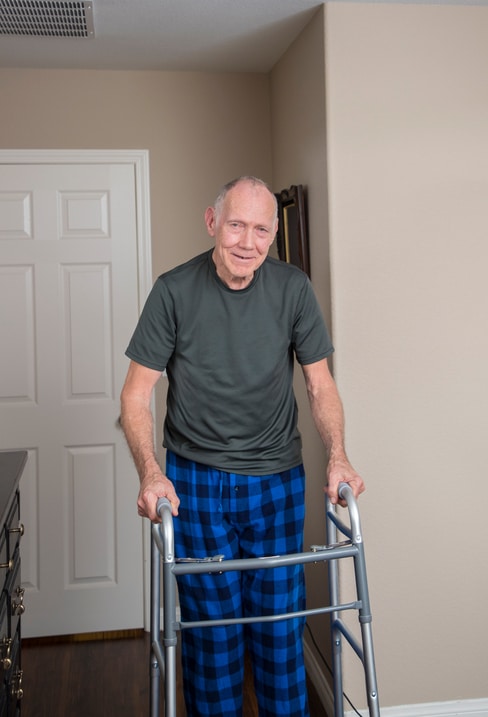
What is deep brain stimulation?
Deep brain stimulation is a surgical procedure where electrodes are implanted into certain areas of the brain. For most patients, these areas are the thalamus, subthalamic nucleus, and globus pallidus. These electrodes produce electrical impulses that regulate the abnormal impulses created with Parkinson’s. The goal of the surgery and implantation is to deactivate certain parts of the brain without destroying or damaging nearby tissue.
How is DBS performed?
For the brain surgery portion, you are fitted with a stereotactic head frame to keep your head perfectly still during the surgery. We use magnetic resonance imaging to map your brain and identify the area where we’ll place the electrode.
Next, we numb your scalp (the brain itself has no pain receptors). We then implant a thin wire with some contacts at the tips into a specific area of your brain. We may place one implanted wire on each side. The wire then runs under your skin to a pulse generator (neurostimulator) that is implanted near your collarbone. Usually, you remain awake and alert during the surgery, so that you can show us that the correct areas of the brain are being stimulated.
The second portion of the surgery is the implantation of the device under the skin of your chest near your collarbone. This device contains batteries and generates the pulses that control the implants in the brain. Once in place, you can control the pulse generator, turning it on and off with special remote control.
How successful is DBS?
After deep brain stimulation, most patients experience significant symptom relief. You may still need to take certain medications for Parkinson’s, but your dosage should drop. This is good because medication side effects can be a problem with Parkinson’s medication.
If you have Parkinson’s that doesn’t seem to be responding to your medication, the next step in treatment could be deep brain stimulation. For this surgery, trust the extensive experience of the neurosurgeons at Texas Neurosurgery to handle the procedure. Call us at (214) 823-2052 to schedule your consultation.


